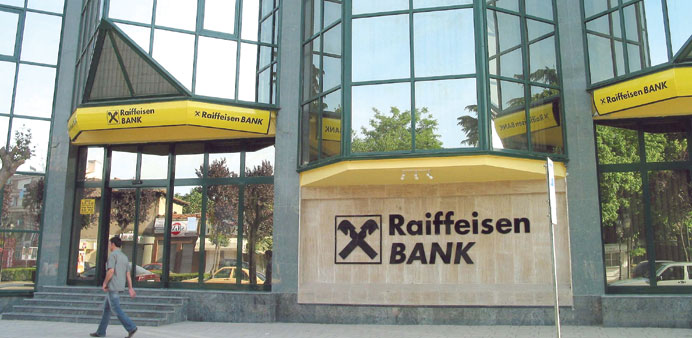Shares in Austria’s Raiffeisen Bank – one of Europe’s blue-chips with the biggest exposure to Russia – jumped 11% after saying it expected no significant impact from Western sanctions against Moscow.
Reuters/Paris
European stocks ended higher yesterday, extending their sharp two-week rebound after better-than-expected German private sector growth figures which reassured investors about the outlook for Europe’s biggest economy following a soft patch.
The FTSEurofirst 300 index of top European shares ended 0.7% higher at 1,355.09 points, reaching a level not seen since late July.
Markit’s flash composite Purchasing Managers’ Index (PMI) for Germany – which tracks growth in the manufacturing and service sectors that make up more than two-thirds of the economy – came at 54.9 for August, down from 55.7 in July but still well above the 50 mark that separates growth from contraction.
Last week, GDP data showed Germany’s economy suffered a surprise contraction – its first in more than a year – in the second quarter.
“It’s a relief rally. There were concerns that the German economy was going to suffer because of Ukraine-related issues, but today’s data shows that the economy is going to keep on growing,” Koen De Leus, senior economist at KBC, said.
The FTSEurofirst 300 had lost as much as 7% between late June and early August, hurt by worries the Ukrainian conflict and tensions between the West and Moscow could derail Europe’s fragile economic recovery and hit corporate results.
Germany’s DAX index, one of the European markets hardest hit by worries over turmoil in Ukraine, had lost as much as 11% in the sell-off.
The DAX gained 0.9% yesterday, Britain’s FTSE 100 index was up 0.3% and France’s CAC 40 rose 1.2%.
For FXCM analyst Nicolas Cheron, however, the market rebound seen in the past two weeks remains fragile and European stocks continued to underperform Wall Street.
“Even though worries about Ukraine have eased a bit lately, it still weighs on European stocks and particularly the DAX. There won’t be a real rebound until the end of the hostilities or some kind of deal between Russia and Ukraine.”
Shares in Austria’s Raiffeisen Bank International – one of Europe’s blue-chips with the biggest exposure to Russia – jumped 11% after saying it expected “no significant impact” from Western sanctions against Moscow.
The stock had tumbled more than 30% between early June and early August.
Shares in mining stocks bucked the trend after data showed China’s manufacturing activity hit a three-month low in August, with shares in Rio Tinto down 0.7% and Anglo American down 1.3%.
The HSBC/Markit Flash China Manufacturing Purchasing Managers’ Index (PMI) fell to 50.3 from 51.7 in July, missing economists’ forecast of 51.5.

